Founded in 2020, Our mission is to promote the development of global health strategies dedicated to the public interest while supporting social and environmental sustainability. Since then, our team has expanded to include a diverse team of global health experts who are dedicated to promoting the health of the people and the planet.
UHF offers over 100 years of combined expertise in public and global health research and communication, health economics and development economics. We also have long-standing experience working with the WHO, UNIATF, and other key international stakeholders.
Our vision is a world where human and planetary health are supported by robust, sustainable infrastructure.
We Are United Health Futures
-
Jeremy Lauer joined Strathclyde University in 2020 as Professor of Management Science following a 25-year career as Economist with the World Health Organization (WHO).
Jeremy has a bachelor’s degree (A.B., 1986) in Mathematics and Philosophy from St John’s College, Annapolis, master’s degree (M.A., M.Sc., 1991) in Economics and in Agricultural and Applied Economics from the University of Wisconsin, and a doctorate (Ph.D., 2009) in Health Policy and Management from Erasmus University Rotterdam.
Jeremy's research has centred around the use and interpretation of mathematical models in economic evaluation in global health, and he has contributed to an influential body of work on the cost effectiveness of interventions against cardiovascular risk factors and disease, respiratory conditions, cancers, maternal and child health, HIV/AIDS, malaria, tuberculosis and interventions for chronic disease prevention, as well as on health systems research and diverse topics in epidemiology, modelling and statistics.
He has led inter-disciplinary teams in a range of countries in Latin America and Africa on adapting the results of economic evaluation to national settings.Jeremy has served as Principal Investigator and Co-Investigator on a number of large research projects in breast-cancer and chronic-disease control and has been a member of Steering Committees and Technical Advisory Groups at the University of Stellenbosch (SACEMA), the University of Basel (Swiss TPH) and the University of Bergen (CIH).
In 2016, Jeremy analysed the economics of fiscal space for health workforce expansion in lower- and lower-middle income countries, as well as the interactions between the health system and the economy, for the UN Secretary-General’s High-Level Commission on Health Employment and Economic Growth.
-
Jean-Louis Arcand is Professor in the Department of International Economics at the Graduate Institute of International and Development Studies in Geneva, which he joined in 2008. From 2017 to 2020 he was department chair, from 2012 to 2016 he was the founding director of the Center for Finance and Development and from 2009 to 2012 he was chair of Development Studies.
He is a Founding Fellow of the European Union Development Network (EUDN), a Senior Fellow at the Fondation pour les études et recherches en développement international (FERDI), and Visiting Professor at the Hanqing Advanced Institute of Economics and Finance at Renmin University of China in Beijing. He was assistant and then Associate Professor at the University of Montréal, and Professor at the Centre d’Etudes et de Recherches en Développement International (CERDI).
He holds a PhD in Economics from the Massachusetts Institute of Technology (MIT), an MPhil from Cambridge University and a BA (high honors) from Swarthmore College. His research deals with the microeconomics of development, with a current focus on impact evaluation, health and the political economy of China. He consults for the World Bank, the FAO, the UNDP, the WHO, the EU, the Gates Foundation and several national governments.
-
Geordan Shannon is a medical doctor and academic at the Institute for Global Health, University College London. Much of her career has been dedicated to thinking critically about gender, health systems, and transformative, trans-disciplinary and transnational approaches to global health, with a strong emphasis on systems thinking, human-centred design, and participatory research. She was awarded the United Kingdom’s Young Australian of the Year Award in recognition of her oversight of community-led interventions for non-communicable disease and violence prevention in Australia, Kenya, Peru, Sierra Leone and the Republic of South Africa. Her current research takes a systems and design thinking approach to address broader (eco)systems failures in achieving human health and wellbeing in low resource settings worldwide.
Through a deep understanding of local contexts and insights into informal community systems that operate to support and promote human health, Geordan's research works to better understand how communities use local resources, and how orchestration of community resources can help health interventions be more effective and more sustainable.Her current research focuses on informal systems of community health and wellbeing, and enabling communities to mobilise and transform local resources to improve their health and wellbeing.
Through her work, she has participated in a number of high-impact international initiatives such as the Lancet theme issue on Women in Science, Medicine, and Global health, the All Stars in Global Health initiative from Grand Challenges Canada, the Wellcome Trust Culture and Cause, and the Hamwe Festival in Rwanda. She has a portfolio of experience in international health policy, having collaborated with the World Health Organisation and the Global Health 5050 Initiative to translate academic insights to effect high-level change alongside colleagues and stakeholders internationally.
-
Des Tan is a technology entrepreneur with ventures in America, Australasia, and Europe.
His current work involves building data models, analytics platforms and web-based tools for government, the UN, FTSE 100 companies and digital health services.
Prior to this, he has led a number of enterprises with a focus on equitable representation in the creative industries, including investment in the South East Asian film industry.
He studied mathematical biology at Oxford where he worked on population modelling and infectious-disease modelling of malaria, bubonic plague and other zoonoses.
Des was also an advisor and tech lead for the Prime Minister’s Strategy Division in Australia, where he analysed census and other population data to build strategic frameworks, economic models and decision-support tools. Currently he leads action-oriented research on systems thinking, knowledge translation and decision making in low resource settings worldwide.
His main interest is in healthcare and health technology and, in general, genuine human needs that are overlooked and under served by current business and technology models.
-
Esther Goette is a seasoned certified professional coach and leadership development consultant based in Geneva, Switzerland with over 10 years of coaching and facilitation experience.
She is specialized in Executive Coaching, Leadership Development and Team Development and works with international leaders, particularly women leaders, in supporting their professional and personal growth.
She builds on her 20 years career as a global marketing executive with roles in strategic leadership as well as operations/line management.
She is an experienced global leader of multi-functional and multi-cultural teams and has held leadership positions with Colgate-Palmolive, Procter & Gamble and Novartis OTC, in Europe and the USA.Esther has a Masters Degree in Business Adminstration from the University of Hamburg, Germany, specialized in Marketing.
She is a certified professional coach (CPCC) from the Co-Active Training Institute and received the Swiss Advanced Federal Diploma as a “Supervisor-Coach”.
-
Casey McAndrew is a global health communications specialist and has extensive experience working with community-based organisations and non-profits, focusing on health promotion, outreach, and policy.
She received an MSc in Global Health and Development from University College London and a BA in Women and Gender Studies from the University of Colorado Boulder.
Her previous research uses an intersectional lens to examine topics such as gender, health, and HIV.
-
Srivatsan (Chikku) Rajagopalan is a recent graduate from the MSc Global Health Development program from University College London (UCL), with a BSc (Hons.) in Biomedical Sciences from the University of Edinburgh.
His previous global research experience has dealt with topics of child health, HIV/AIDS and global health security. He also works with charities and non-profits to increase awareness around sexual violence and harassment and advocate for change. He is currently conducting data and analysis and quantitative research to develop an index on children’s health.
His diverse and international research participation has added to his interest in exploring innovation in digital health.
We bring together creative, multidisciplinary approaches to address complex, interconnected global challenges.
Our Values
We are dedicated to national capacity building and committed to engaging local expertise and using local resources wherever possible.
CAPACITY BUILDING
We believe that human health is about more than just longevity, it is about creating local conditions that allow for human flourishing because everyone deserves a foundation to realise their potential and improve their quality of life.
HUMAN FLOURISHING
Traditional private- and public-sector visions are no longer adequate for addressing emerging problems in a globalised world. We are dedicated to the advancement of solutions that can respond today to tomorrow’s challenges.
FOR THE COMMON GOOD
The quality and scientific rigour of our products are ensured by an interdisciplinary, world-renowned team of experts.
QUALITY
We recognise planetary boundaries. Resources are not infinite; we commit to sustainable solutions that value local resources.
SUSTAINABILITY
Our Standards
To ensure that you receive products that meet your standards, the quality and academic rigour of our work is certified by a world-renowned scientific board. This diverse group of competent and impartial professionals review and sign-off on each work package.
QUALITY ASSURANCE
UPHOLDING ETHICS, EQITY & ENVIRONMENTAL SUSTAINABILITY
Our principles emphasise our commitment to a just and sustainable future. These principles guide our practice and partnerships, and we are dedicated to promoting these principles in our work.
We subscribe to the Global Code of Conduct for Research in Resource-Poor Settings principles of fairness, respect, care, and honesty. We commit to upholding the ethical principles for research involving human subjects outlined in the World Medical Association Declaration of Helsinki. We seek community permission and approval from local ethical bodies/authorities and approvals when necessary.
RESEARCH ETHICS
Why Choose Us
UHF offers over 100 years of combined expertise in public and global health research and communication, health economics and development economics.
We have long-standing experience working with the WHO, UNIATF, and other key international stakeholders.
-
We specialise in systems thinking and problem structuring to tackle complex global challenges.
-
We harmonise approaches across and within our work. We utilise a rigourous, interdisciplinary framework to design and implement real-world solutions.
-
We challenge traditional ideas of public and private sectors. We democratise public goods and empower individuals to create shared value.
-
While we offer state-of-the-art technical knowledge, our work embraces creativity and challenges conventional wisdom when necessary.
-
We believe in results, but we know that the process matters too. Each of our outputs demonstrates how our work adheres to our foundational principles.
-
We offer creative solutions for the interconnected global challenges of climate change, globalisation, and social inequality. Through rigourous design, we ensure that our work adheres to our social, environmental and ethical values.
-
We are committed to bridging the gap between research and policy, and between formal and informal systems


















